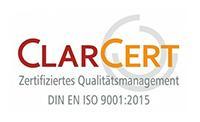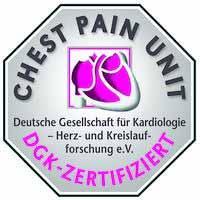Recently, hypertension has become a very common heart disease all over the world. As a rule, a patient suffering from hypertension has a stable high pressure, which leads to frequent headaches, dizziness, hangover fatigue, and many other troubles, which we are used to due to a frantic pace of life.
Remember that hypertension has primarily a very damaging effect on the brain, eye vessels, heart, and other vital organs. This disease is the root cause of all heart attacks and strokes, so it is extremely important to diagnose hypertension in a timely manner.
Content
- Overview
- What are the risk factors?
- Types of hypertension
- Treatment in Germany
- Complications of hypertension
- Advantages of hypertension treatment in Germany
- Best German medical centers for treatment
- The cost of treatment
Overview
A large proportion of people suffering from hypertension are not even aware of it. Familiar symptoms, including headache, palpitations, blurred vision with flickers in front of the eyes, swelling of the face and limbs, numb fingers most tend to write off on fatigue and overexertion. Irritability, apathy and drowsiness, and excessive sweating are often added to these signs as well. Other signs that increase over time include severe dizziness, clenching pains in the heart area, ringing in the ears, choking attacks, nosebleeds, and nausea until vomiting.
Hypertension implies a steady increase in blood pressure (BP) due to vascular changes. Today neither young people nor elderly people are spared. And it is not only worse during the attack, but also difficult to treat, often with irreversible complications.
Hypertensives may live normally and feel adequate even at a heightened pressure, but at this time pathological changes occur in their organism, which may not only worsen the general health and quality of life, but can also lead to a tragic outcome.
What are the risk factors?
The general definition of hypertension suggests that no one is immune to the pathology. It is common in cardiology to divide the cardiovascular risk factors into the following groups:
- Factors caused by genetic heredity. This group includes all people whose closest relatives suffered from hypertension, cardiac abnormalities, and vascular disease.
- Controlled circumstances. Bad habits, lifestyle, stressful job, overeating, etc., anything that a person can change but has not yet increased the risk of getting chronic hypertension.
- Comorbidities. All diseases that in their clinical picture have complications on the cardiovascular system increase the likelihood of hypertension.
Based on the abovementioned, preventive examination by a cardiologist is a must to prevent hypertension or to control the existing disease.
The treatment in Germany offers patients the possibility to have a comprehensive preventive or regular checkup for cardiovascular diseases. Modern diagnostic methods, leading specialists in the field, and professional medical staff create all the necessary conditions for comfortable and quick examinations.
Types of hypertension
Depending on the causes for the development of hypertension, the following forms of the disease are distinguished:
- Hypertension (essential hypertension) accounts for 80% of all cases of hypertension. The exact causes of the development of the disease are unknown. Various internal and external environmental factors play an important role in the development of the disease.
- Symptomatic hypertension occurs due to other diseases, in which there is a violation of the mechanism of regulation of blood pressure.
- Hemodynamic hypertension arises due to violations of blood circulation within the heart and through the arterial vessels.
- Neurogenic hypertension arises as a result of disturbances in the nervous mechanisms of blood pressure regulation.
- Endocrine hypertension develops due to endocrine disorders, in which there is an increased or insignificant secretion of hormones that cause elevated blood pressure.
- Nephrogenic hypertension is observed in various kidney diseases proceeding with the destruction of kidney tissue or disturbances of blood circulation within the kidneys.
- Drug-induced hypertension develops due to taking medications that cause an increase in blood pressure.
Treatment in Germany
Treatment of hypertension is complex and depends on the stage, severity, causes, age of the patients, their health condition, and other factors. It is impossible to cure the disease completely, but it is possible to significantly improve the patient's health condition and delay the onset of life-threatening complications for a long time. The treatment may include non-medication therapy and drug therapy.
Non-medication therapy involves the correction of the patient's lifestyle. Most patients do not give it much importance, but such treatment is the key to successful recovery. First of all, it is necessary to reconsider the patient's diet, reducing animal protein and increasing fiber intake. When treating hypertension in elderly patients, resort therapy and climatotherapy are especially recommended. The doctor prescribes therapeutic exercises and physical training. It is useful to reduce anxiety by the methods of psychotherapy.
The treatment of hypertension quite often involves the use of the principle of "steps" when prescribing medications. Groups of drugs are prescribed with the necessary sequence, since the drugs have a different degree of impact on the mechanism of BP increase. When a person achieves a stable decrease in blood pressure, the doctor transfers the patient to supportive therapy.
In the treatment of stage 1 hypertension, one antihypertensive drug is usually prescribed, which is taken as an outpatient under the supervision of a specialist. Drugs are prescribed by courses, the duration of which is several weeks. The treatment of stage 1 hypertension should also include changing the patient's lifestyle. Patients receive detailed recommendations on lifestyle changes that will help prevent the early symptoms of hypertension and slow the development of the health condition. High risk of cardiovascular complications, the presence of several predisposing factors, as well as severe comorbidities are grounds for starting drug therapy regardless of the stage of hypertension.
When treating stage 2 hypertension or when monotherapy is ineffective, the doctor usually prescribes two drugs. The therapy is provided in the hospital setting. If the elderly patients have a stable decrease in BP, patients continue treatment at home. A regular increase in pressure to high values and the first signs of target organ damage is grounds for the mandatory prescription of drug therapy. Stage 2 hypertension, in addition to lifestyle and diet modifications, implies the continuous use of at least two medications. The treatment of hypertension, according to the European guidelines, includes taking several classes of drugs:
- Angiotensin-converting enzyme inhibitors.
- Angiotensin 2 receptor antagonists.
- Diuretics.
- Beta-adregenic blocking agents.
- Calcium channel blockers.
The treatment of 3 stage hypertension implies an individual approach. The treatment is provided in the hospital until the patient’s health condition stabilizes. The doctor evaluates the results of the diagnostic examinations obtained and prescribes a special course of treatment for stage 3 hypertension.
The treatment of advanced hypertension also begins with a minimum of two drugs, but most often at stage 3 such a combination is ineffective and another drug is added to the scheme. The specific therapy regimen is determined by the doctor, taking into account the examination data and the stage of development of hypertension. This is often a specific cause of the persistent BP, which can be eliminated.
It is important to note that stage 3 hypertension implies lifelong medication, as it is impossible to cure this disease completely by medication. The patient needs to visit the doctor regularly in order to assess the effectiveness of treatment and adjust the doses of drugs.
Complications of hypertension
Regardless of the form and severity of hypertension, cardiovascular disease has a significant negative impact on the vital functions of the body as a whole. But according to medical research, the target organs most affected by the deterioration of blood supply, lack of oxygen, and nutrients due to hypertension are the heart, brain, cardiovascular system, organs of vision, and kidneys.
The most common complications of the sometimes implicit and sluggish hypertension just primarily affect the target organs.
The first organ prone to complications of hypertension is, of course, the heart. Because the increased load often thickens the muscle wall, there is hypertrophy of the left ventricle, reduced ability of the heart muscle to enter a state of relaxation, deterioration of diastolic activity, developing acute heart failure, and coronary heart disease. The deterioration of the contractile function of the heart is often accompanied by other comorbidities like atherosclerosis, and diabetes, and then there is a high risk of a deadly disease – a heart attack. Myocardial infarction often occurs due to a rise in pressure to critical levels, in which the blood supply to the heart muscle is disrupted. Infarction is felt by the strongest pain in the heart area, which is reflected in the shoulder, neck, left arm. When such a complication occurs, it is necessary to call an ambulance immediately.
The main danger to the brain is the possibility of hemorrhage in the brain with a sharp increase in blood pressure and the development of stroke, which, together with heart attack, causes more than 60 – 70% of deaths on the entire planet. Stroke develops because the blood supply to an area of the brain has stopped completely. When a stroke develops, in addition to a spike in blood pressure and severe headache, fainting and convulsions are often observed. With untimely medical attention, a person may develop irreversible brain impairment, paralysis of the facial muscles and limbs. Even a mild degree of hypertension, which a person does not treat, negatively affects the state of the brain: constant malnutrition leads to cell damage and atrophic changes, which with age can provoke the development of various types of dementia. It should be said that in recent decades even young patients are diagnosed with hypertensive encephalopathy – a sharp decrease in activity and performance of the brain centers, which develops due to vasospasm and oxygen starvation. Behavioral changes, problems with thinking activity, speech, and coordination of movements arise.
The cardiovascular system suffers from hypertension mainly due to the progressive process of vasoconstriction, reduction in the muscular layer of the walls. The inability of the vessels to perform their functions under certain conditions (stress, emotional or physical overstrain) sometimes leads to a sharp and very rapid increase in pressure – a hypertensive crisis develops. In this dangerous and widespread complication, the symptoms of hypertension are felt very powerfully and all together, up to the loss of consciousness. The development of the crisis is fraught with a heart attack or stroke, and requires immediate medical attention.
It is important not to forget that a person can feel completely healthy and not give importance to the signs of periodically rising blood pressure. But if there are risk factors in lifestyle and habits, and if the symptoms of hypertension periodically manifest themselves, patients should go through a medical examination and rule out the possibility of hypertension itself and its most severe consequences. If all is well with the pressure, continue to eat right, lead an active lifestyle, take care of the necessary tone and elasticity of blood vessels to keep a healthy mind and body until old age.
Advantages of hypertension treatment in Germany
Here is why undergoing treatment in Germany is a good option:
- Cardiology hospitals in Germany perform diagnostics and complex treatment of hypertension at different stages.
- Treatment of hypertension in Germany can take place both in outpatient and inpatient settings. After undergoing a diagnostic course, each patient is obliged to be monitored by a cardiologist during the whole course of treatment.
- Treatment of hypertension is prescribed on an individual basis, as each case of this health condition is unique and requires a special approach.
- Specialists in psychiatry, psychology, and endocrinology are involved in hypertension treatment in Germany to ensure better results. This allows treating the patients not only from the underlying disease, but also to eliminate the causes of its occurrence.
- Official, open pricing policy for medical services. Fixed prices correspond to the quality of service, level, and effectiveness of medical care.
- Comfortable conditions, friendly atmosphere, caring, and attentive medical personnel.
It is necessary to provide treatment at the earliest stage, as soon as an episodic rise in blood pressure is noticed, not allowing the disease to develop. At the German hospitals, physicians are guided by the latest European recommendations in the treatment of hypertension.
Best German medical centers for treatment
German hospitals have a special approach to the treatment of hypertension. The specialists select medications and methods that not only lower blood pressure, but also help to take under control concomitant diseases and avoid life-threatening complications. The capabilities of foreign medicine can stop the further development of the health condition and reduce the number of crises.
Cardiological rehabilitation is actively developing in Germany, which makes it possible to restore the disturbed functions of the organism, and improve the overall quality of life for patients of various gender and age. To reduce blood pressure, the professionals of German hospitals use effective hypotensive drugs, diuretics, drugs normalizing blood cholesterol and glucose levels.
The best medical facilities for the hypertension treatment in Germany are:
- St. Vincentius Hospital Karlsruhe - Academic Hospital of the University of Freiburg.
- Hospital Neuperlach Munich.
- University Hospital Ulm.
- University Hospital Heidelberg.
- Charite University Hospital Berlin.
Contact Booking Health for assistance in selecting the right hospital for you.
The cost of treatment
At the initial stage of treatment, the diagnostic process may require some tests and examinations. In most cases, a complete cardiac examination is necessary. Depending on the clinical situation, advanced laboratory tests, ultrasound, computed tomography and MRI, duplex scanning of arteries in different parts of the body, and angiography may be performed. All of these factors may influence the cost of treatment. However, the average costs for treatment are estimated by Booking Health:
- The prices for hypertension diagnostics start at 499 EUR.
- The cost of treatment with conservative therapy and monitoring starts at 1,712 EUR.
- The prices for cardiac rehabilitation start at 566 EUR.
If you need more information regarding the cost of treatment, do not hesitate to contact Booking Health.
Authors: Dr. Vadim Zhiliuk, Dr. Sergey Pashchenko

















